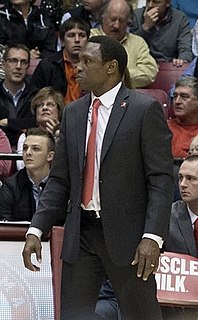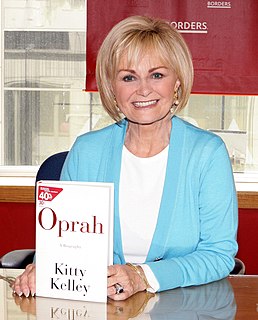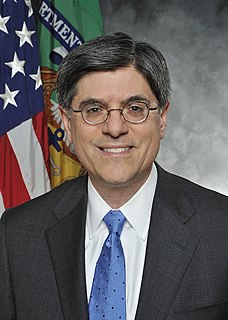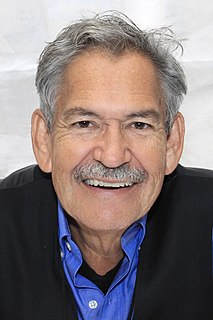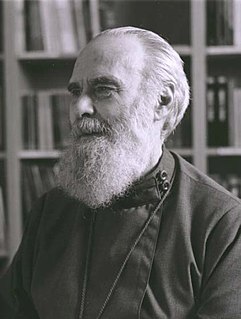A Quote by John F. Kennedy
I am the Democratic Party's candidate for president who happens also to be a Catholic. I do not speak for my church on public matters - and the church does not speak for me.
Related Quotes
I was nurtured in the church; I went to a Catholic school; I was an altar boy; I went to a Catholic university; I was steeped in the moral tradition of the Catholic Church. My Catholicism plays a very strong role. But I thought President John F.Kennedy answered rather well when he said that ultimately my conduct as a public official does not come ex cathedra from Rome; it comes from my conscience.
I believe in an America where the separation of church and state is absolute - where no Catholic prelate would tell the president (should he be Catholic) how to act, and no Protestant minister would tell his parishoners for whom to vote - where no church or church school is granted any public funds or political preference - and where no man is denied public office merely because his religion differs from the president who might appoint him or the people who might elect him.
Growing up in New Orleans, my mom and dad were churchgoers. I would go to church with them. Also, I was going to a Catholic school so I had a fascination with the Catholic Church mainly because, in my mind, (their services) didn't take as long. I was bouncing in between my mom's Baptist church, which was called Second Zion Baptist, and going to a Catholic Church.
I have no question that the Roman Catholic Church teaches that abortion in virtually all circumstances is wrong. I think the church's position at all times in modern history has been that it is unequivocally opposed to abortion.But that's not the question for a Catholic who is a public official. I happen to subscribe to the church's position as a person. Still the question, as Governor Mario Cuomo suggested, is: what is your obligation as a civic leader? I agree entirely with John F. Kennedy. I answer only to my conscience in my public life and that's that.
I'm an ex-Catholic priest. I have such a complex relationship to Catholicism. On the one hand, if I called myself a Catholic it would have to be a very unorthodox one, as I just don't believe all of the teachings of the Church. But on the other hand, I'm an educated man because the Catholic Church educated me. It gave me something that is really important to me. So I always think about my faith. I always have it, and sometimes I can't talk about it, and sometimes I can. I am like an adolescent in that way. Teens are asking questions: who is God and what does it mean to have faith?
It does seem to me, though, that there is a difference between the Mormon Church saying, "We don't accept gay people within the Church; we don't accept gay marriage within the Church; we don't accept people who act on their homosexual desires within the Church;" and trying to interfere with what happens outside of the Church. That seemed to me to be an abomination.
Baptism does not profit a man outside unity with the Church ... For many heretics also possess this Sacrament but not the fruits of salvation ... The benefits which flow from Baptism are necessarily fruits which belong to the true Church alone. Children Baptized in other communions cease to be members of the Church when, after reaching the age of reason, they make formal profession of heresy, as, for example, by receiving communion in a non-Catholic Church.
It seems to me, and I am personally convinced, that the Church must never speak from a position of strength. [These are shocking words.] It ought not to be one of the forces influencing this or that state. The Church ought to be, if you will, just as powerless as God himself, which does not coerce but which calls and unveils the beauty and the truth of things without imposing them. As soon as the Church begins to exercise power, it loses its most profound characteristic which is divine love [i.e.] the understanding of those it is called to save and not to smash.


